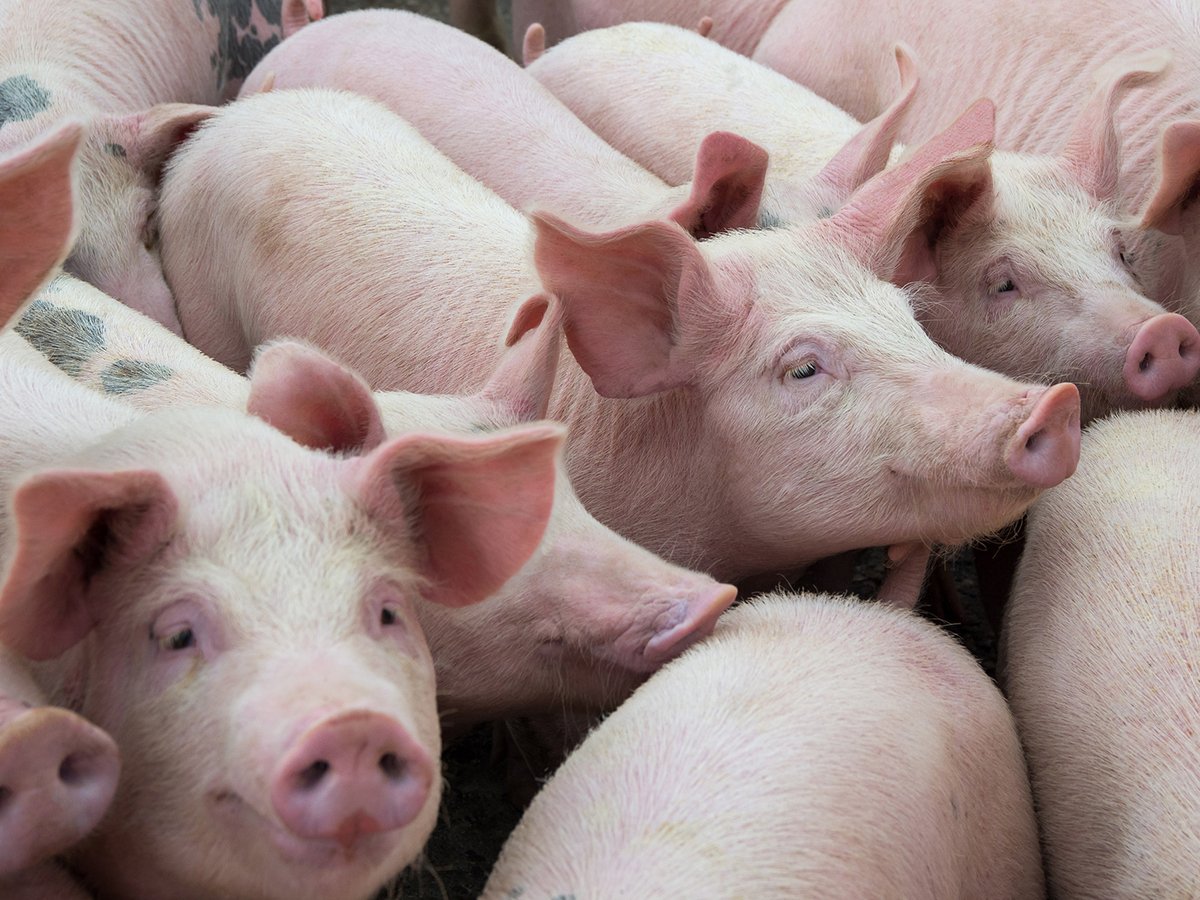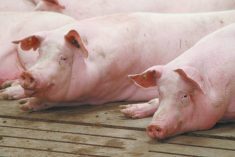The diligence of Manitoba producers in cracking down on porcine epidemic diarrhea is being credited for the quick detection of a related illness.
Porcine deltacoronavirus (PDCoV) has been confirmed on one farm in the southeast, the Manitoba Pork Council has said.
It’s not good news — no barn infection ever is — but PDCoV doesn’t have the same production implications as PED, said Jenelle Hamblin, the council’s manager of swine health.
PDCoV, which is in the same family as both PED and transmissible gastroenteritis, presents similarly to its more serious cousin, but it does not cause the over 90 per cent piglet mortality that PED is famous for.
Read Also

Quebec pork company calls for transparency around gene-edited pigs
Quebec-based pork company duBreton is calling for transparency around meats from gene-edited pigs on concerns that a lack of mandatory labelling will confuse consumers, and dilute certification claims. The organic sector is also calling for labelling rules.
“Delta (coronavirus) does show less severe symptoms,” Hamblin said. “Same clinical impression, but certainly not as intense as with PED … It can cause mortality in piglets, but it would have to be a pretty severe case.”
Sick animals will have bouts of diarrhea, vomiting or just generally go off feed, but tend to recover well, especially older animals, she noted.
“It would be a series of symptoms and they would recover and move on towards market weights no problem.”
Regardless of the milder illness, the infected farm has still been placed under biocontainment, she said.
The case was detected because of its shared symptomology with PED. Manitoba’s pork sector is on high alert against the more serious illness, which has seen a string of serious outbreaks since 2017 and significant disruption and loss for infected farms, particularly those dealing with vulnerable piglets.
Therefore, when pigs in the barn started showing signs of what operators worried could be PED, testing followed in short order.
“(We) really would like to acknowledge the vigilance and the diligence that our producers are showing related to awareness for PED and monitoring for PED and acting quickly,” Hamblin said.
The Manitoba Pork Council’s PED elimination plan is relying on that kind of attention. The industry group hopes to wipe out 96 per cent of PED cases in the southeastern high-risk zone by 2027.


















